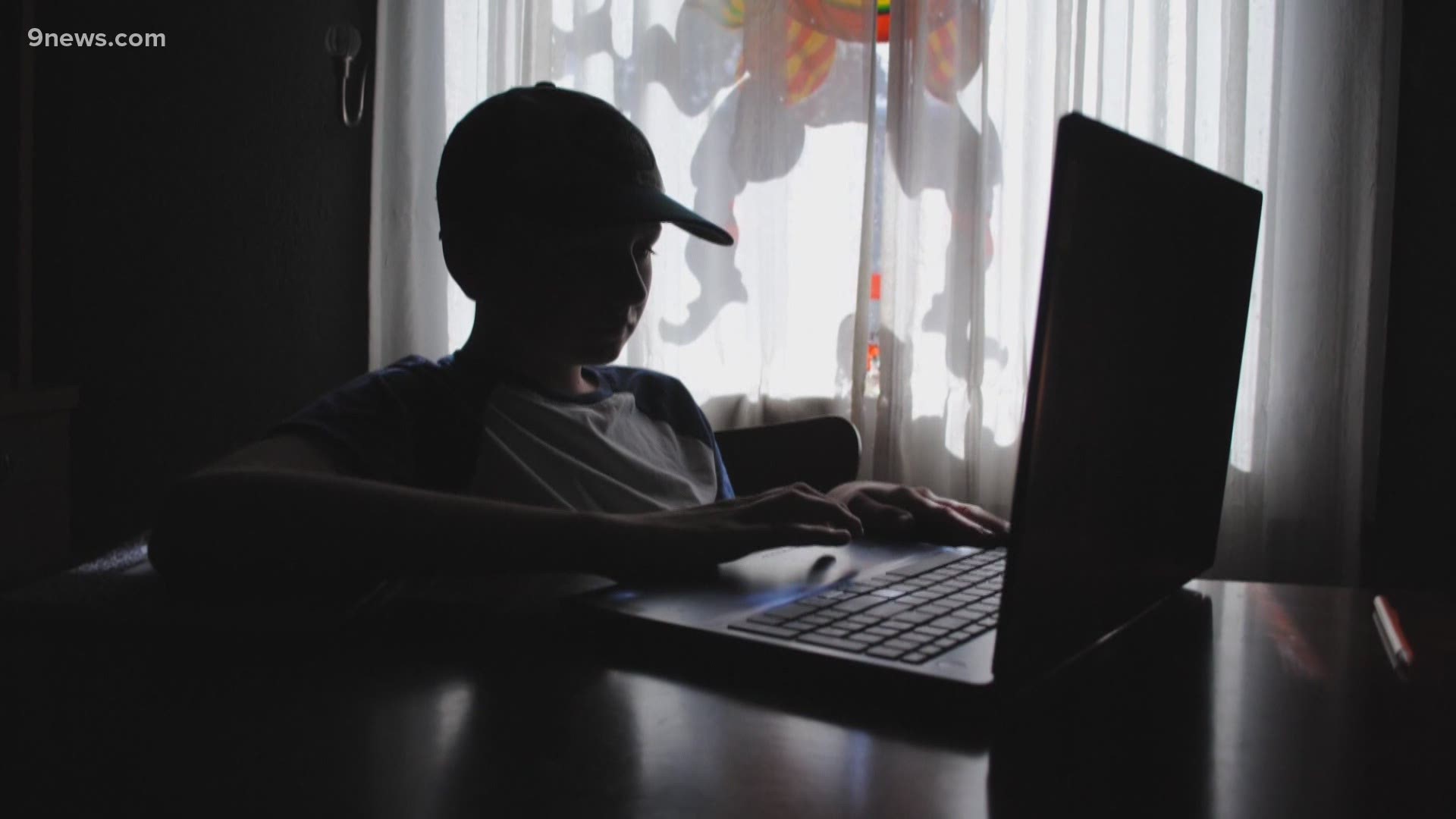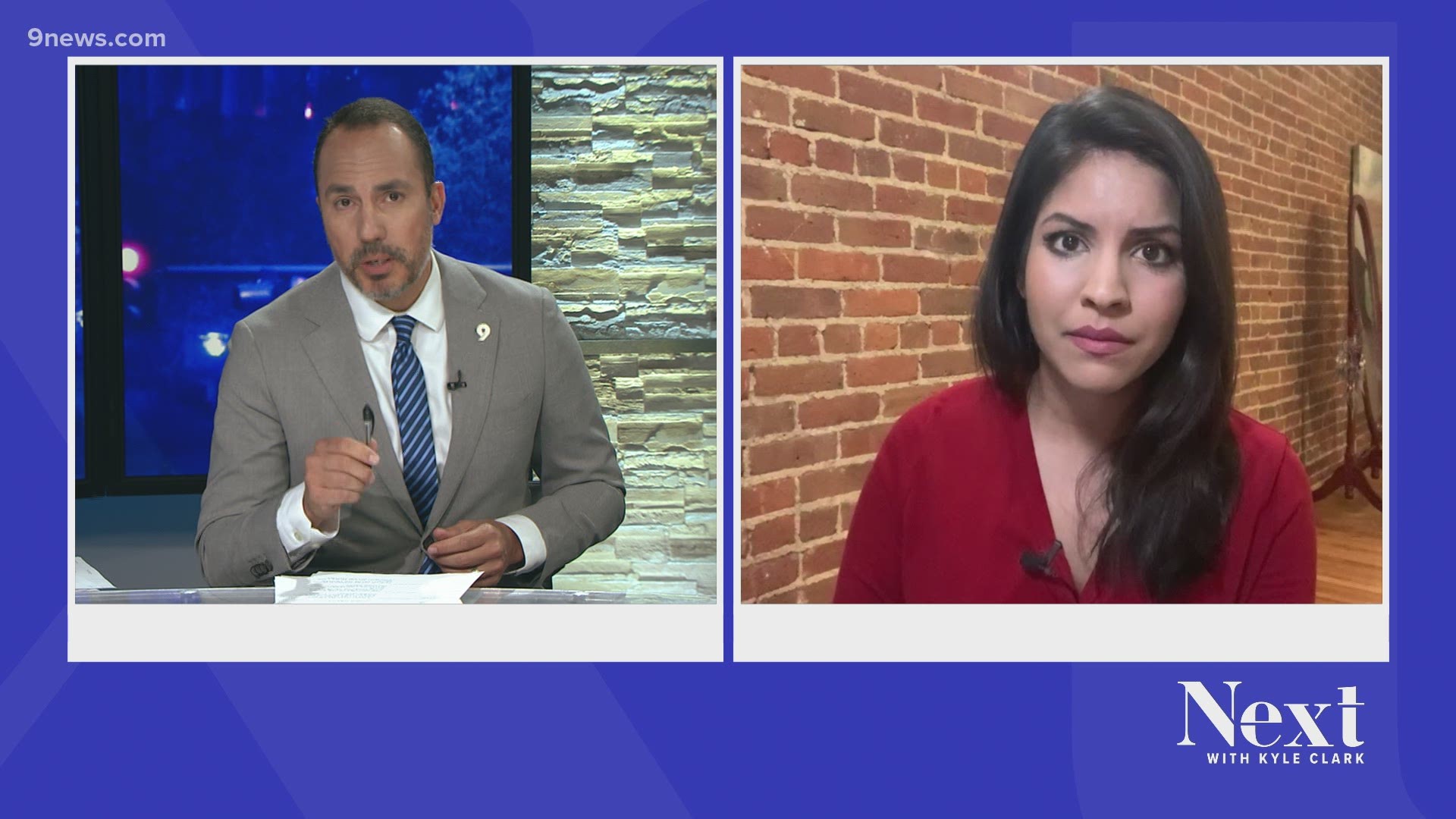DENVER — A new Colorado bill introduced last week seeks free access to mental health services for youth dealing with the disruptions of COVID-19.
House Bill 21-1258 would establish a temporary youth mental health services program in the office of behavioral health within the department of human services, the bill's summary says.
The program would allow up to three free mental health sessions for every Coloradan age 18 and younger and providers would be reimbursed through the program.
The bill would require the department of human services to enter into an agreement with a vendor to create or use an existing website as a portal to facilitate the program soon as practicable, but no later than May 31, the bill's summary says.
The bill cites enormous disruptions to school, social activities and support networks, along with increased isolation and instability – among others – as reasons why the free program for kids is necessary.
"Since the pandemic began, the Colorado crisis services hotline has experienced a (30%) increase in calls and texts, and Children's Hospital Colorado has seen a (10%) increase in the number of kids who visit the psychiatric emergency department due to thoughts of suicide," the bill reads. "As experts sound alarms about the state of youth mental health, both now and looking into the future, the general assembly recognizes that recovery from the pandemic will depend on youth having access to mental health support, regardless of their ability to pay for it."
The program would be repealed effective June 30, 2022.
WATCH: Bill would provide kids free access to behavioral health specialists in Colorado
Mental health resources
There are four ways to get confidential and immediate help: by phone at 1-844-493-8255, over text message (text the word “TALK” to 38255), via an online chat service, or at walk-in centers throughout metro Denver, northern, the southeast region and the western slope. Many of these services are available 24/7.
Trained counselors are available to help with relationship problems, depression, bullying, stress, suicidal thoughts, substance abuse, family crisis and more.
Safe2Tell allows students, parents and community members to anonymously report anything that is concerning or threatening. According to their website, those who use the service can help stop a friend from committing suicide, get a friend to stop using drugs, or keep a bully from continuing to make other students miserable.
Tips can be made by calling 1-877-542-7233. They can also be submitted online, or via the Safe2Tell app.
The National Suicide Prevention Lifeline provides free and confidential support for those in crisis 24/7 at 1-800-273-8255.
The department offers outpatient counseling for individuals and families; intensive counseling and medication evaluation through a partial hospitalization program; and intensive individual, group and family day outpatient counseling programs.
Learn more and schedule an appointment by calling 720-777-6200 or by visiting their website.
DU offers counseling services for adults, children, couples, families, etc. at affordable rates. The sessions are provided by graduate student counselors under direct supervision of licensed psychologists and a peer consultation group. Prices range from $5 - $30 per session.
This advocacy organization hosts a variety of online mental health screening in both English and Spanish, a mental health toolkit for schools, a page dedicated to the latest mental health research, as well as a variety of events throughout the year.
Spark the Change's Pro Bono Mental Health Program connects volunteer therapists, counselors and other professionals with low-income Coloradans who are in need of the help. Call 1-844-380-6355 and if you qualify, you'll be matched with a counselor.
Take online mental health screens to see where you're at, research different mental health conditions and treatments, get tips for talking about your mental health, find worksheets for improving your mental health or staying healthy, etc.
Using this link, you can find the community mental health center nearest to you. All of the centers accept Medicaid and most have sliding payment options for those who do not have insurance.
Take a mental health screening to determine if you are experiencing the symptoms of a mental health condition.
SUGGESTED VIDEOS: Politics


